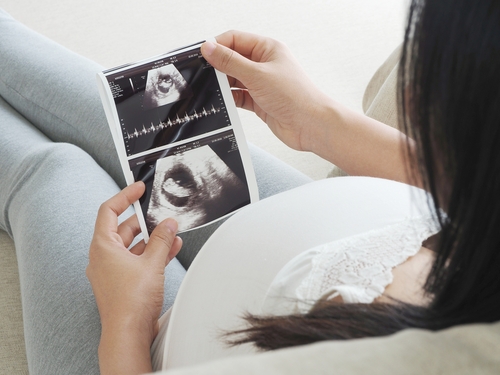Increased Protein Levels Linked to Pregnancy Complications in Alport Syndrome, Study Shows

More severe kidney impairment associated with increased levels of protein in the urine is linked to pregnancy complications and pre-term births in women with Alport syndrome, according to a small Italian study.
The study, “Alport syndrome and pregnancy: a case series and literature review,” was published in the journal Archives of Gynecology and Obstetrics.
Alport syndrome is a rare genetic disease characterized by renal impairment, which can progress to serious kidney disease and hearing loss.
Previous studies showed that Alport syndrome can affect both women and men with similar severity and clinical outcomes.
Researchers at Fondazione IRCCS Ca’ Granda Ospedale Maggiore Policlinico in Milan, Italy, believe that pregnancy in women with Alport syndrome may be linked to maternal and fetal risks. However, there is little information about the impact of Alport syndrome on pregnancy and fetal outcomes.
To shed light on this issue, the Italian researchers followed the progression of seven pregnancies and clinical manifestations of Alport syndrome in six women, ages 16 to 49. A multidisciplinary team of nephrologists and gynecologists followed the women during pregnancy and for at least three years after delivery.
They detected a single case of severe impaired kidney function with signs of blood in the urine, called hematuria, at the time of conception. All women who were on medication to manage protein levels stopped the treatments after positive pregnancy tests or before conception in planned pregnancies.
Only one patient had a full-term, uneventful pregnancy. This woman experienced only isolated microscopic hematuria that persisted unchanged 3.2 years after delivery. In the other pregnancies, in which protein levels were elevated (proteinuria), researchers found some complications.
Protein levels were found to increase during the last trimester, reaching tissue-damaging levels in five out of six cases. This was found to be associated with fluid overload, which led to hospitalizations and early delivery with cesarean section.
After birth, these women initiated treatment with inhibitors (ACE-I) or angiotensin receptor blockers (ARB), and protein levels returned to normal ranges with no signs of disease progression.
Two patients who had arterial hypertension at conception and twin pregnancies experienced pre-eclampsia and renal function deterioration. In these patients, renal impairment persisted after delivery, reaching end-stage renal disease in the women who already had renal symptoms before conception.
All newborns except one were healthy. The one who was unhealthy died due to abnormally formed kidneys. The majority of the babies had low weight at birth, but this was not due to the mother’s condition; it was due to pre-term delivery. The weight was within expected ranges according to the babies’ gestational time.
Although the number of observed pregnancies is low to “draw definitive conclusions,” the researchers believe that “all these cases clearly underline that the presence of proteinuria at conception is a risk factor for the occurrence of maternal and fetal complications in Alport pregnancies.”
In general, these findings are in agreement with previous reports which suggested that renal symptoms are critical for the development and outcome of pregnancies and the fetus. This highlights the importance of pre-conceptional counseling and close pregnancy follow-up in all women with Alport syndrome, researchers said.







Leave a comment
Fill in the required fields to post. Your email address will not be published.